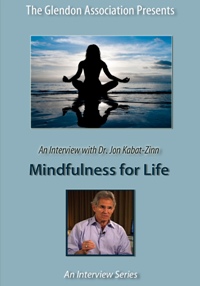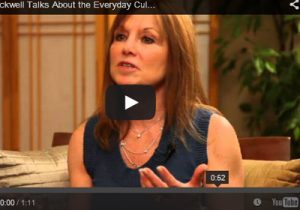Mindfulness-Based Stress Reduction
Watch and read an exclusive interview with Dr. Jon Kabat-Zinn.
People will say to us after eight weeks in our mindfulness-based stress reduction clinic at the University of Massachussets Medical Center, that they felt like they got their life back in some way. And these are people with cancer of various kinds, heart disease, chronic pain conditions, people who have, in some sense, not gotten satisfaction from the mainstream health care system and where the invitation in MBSR, Mindfulness Based Stress Reduction, is to actually do something for yourself that no one else on the planet can do for you. And it really involves this quality of cultivating what I would call “affectionate attention,” or mindfulness. And there are specialized ways that you can use to help facilitate that process. And so people that understand about meditation or who have heard about meditation often think, “Oh, yeah. It’s about breathing. Oh yeah, it’s about breathing,” for instance. And a lot of our patients, when they’re finished with MBSR and you ask them, “Well, what did you get out of the program?” a lot of them will say, “The breathing.” And I say, “Wait a minute. You were breathing before you took the MBSR program. You’re going to be breathing for a long time after. What are you talking about with the breathing?” See, they’re not really talking about, “the breathing” or “breathing.” What they’re talking about is “my intimate relationship with my breath that I didn’t have before.” And that is called awareness, pure and simple, or mindfulness. But when you pay attention to the breath, to the rising of the breath on the inhalation and the sensations in the body – we’re not talking about thinking about the breath – but just the sensations of the wave of the breath coming in and then it peaks and we can feel that peak – not breathing in, not breathing out – the wave of the breath leaving the body and then the trough and then the next wave. And when we ride on those waves, like surfing on the waves of the breath, first of all, it naturally calms us down, it naturally slows us down, it naturally centers the focus of our awareness in the present moment and in the body. So when people talk about “the breathing,” what they mean is mindfulness of breathing.
Order the Full DVD Interview:
 Mindfulness for Life: An Interview with Jon Kabat-Zinn
Mindfulness for Life: An Interview with Jon Kabat-Zinn
In this DVD, Dr. Jon Kabat-Zinn defines mindfulness as a way of “connecting to your life.” He discusses the “hard work” of living in the present moment, the personal and psychological impacts of developing a practice of mindfulness, and the benefits of utilizing mindfulness in therapy. He also touches upon mindfulness in parenting. Drawing upon his years of experience and research in the field of mindfulness, Dr. Kabat-Zinn offers an inspiring and instructive approach for mental health professionals and curious individuals alike.
Tags: anxiety, jon kabat-zinn, MBSR, mindfulness, mindfulness and stress, mindfulness-based stress reduction, stress, stress reduction









Leave a Reply